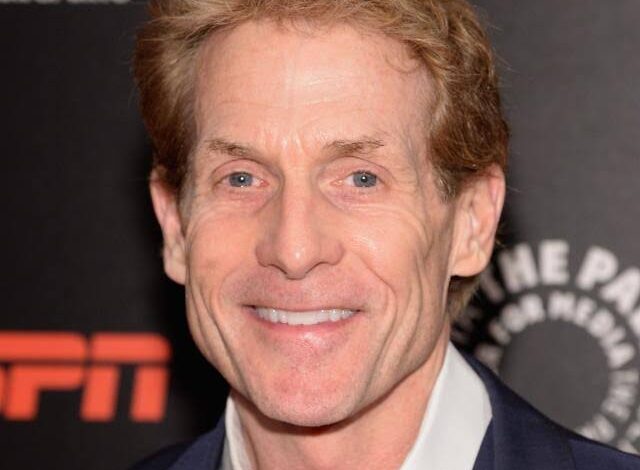Skip Bayless vs. Twitter Trolls: Analyzing the Battle for Attention in the Twittersphere

Unleashing a storm of controversy and captivating the attention of millions, Skip Bayless has become one of the most polarizing figures in the world of sports media. But as he takes to Twitter to share his opinions and insights, there’s another force lurking in the shadows – Twitter trolls. These elusive creatures thrive on provoking reactions, spreading negativity, and challenging anyone who dares to challenge them. In this blog post, we delve into the battle for attention between Skip Bayless and these notorious trolls within the Twittersphere. So buckle up and get ready for an eye-opening exploration into this fascinating clash!
What is a Twitter troll?
In the vast expanse of Twitter, where opinions collide and debates ignite like wildfire, one particular species stands out – the Twitter troll. But what exactly is a Twitter troll? Well, think of them as online mischief-makers who revel in stirring up controversy and chaos. They lurk in the shadows of anonymity, armed with snarky remarks and inflammatory comments.
Twitter trolls feed on attention like vampires crave blood. Their goal? To elicit emotional reactions from others by deliberately provoking or offending them. They thrive off the chaos they create and relish in engaging unsuspecting victims in heated arguments that often spiral into a cesspool of insults.
These trolls are cunning masters at pushing people’s buttons, targeting public figures like Skip Bayless with their relentless attacks. With just a few keystrokes, they can disrupt an entire conversation thread or derail someone’s day without batting an eye.
But why do these trolls choose to wreak havoc on social media platforms? Some find satisfaction in gaining power over others through their disruptive behavior. Others simply enjoy the thrill of causing chaos and witnessing the aftermath unfold before their eyes.
While dealing with these trolls can be infuriating, it’s essential not to fall into their trap by responding angrily or engaging too deeply. Instead, it’s best to employ strategies such as ignoring their provocations or using humor to disarm them.
Remember, when facing these digital instigators, maintaining composure is key. By refusing to give them the attention they seek or falling prey to their baited traps, we can minimize their impact and prevent ourselves from being drawn into endless battles within this unpredictable realm called Twitter.
Who is Skip Bayless?
Skip Bayless is a renowned sports commentator and television personality who has made quite a name for himself in the world of sports media. With his bold opinions and provocative statements, he has managed to capture the attention of both fans and critics alike.
Born on December 4, 1951, in Oklahoma City, Skip began his career as a journalist before transitioning into television. He gained popularity through his work as a columnist for The Dallas Morning News and later became known for his appearances on ESPN’s debate show “First Take.”
Bayless’ outspoken nature often sparks heated debates among sports enthusiasts. His unfiltered commentary and willingness to take controversial stances have earned him both praise and criticism from viewers. Love him or hate him, one thing is certain – Skip Bayless knows how to generate attention.
His presence on Twitter only amplifies this battle for attention. With over three million followers on the platform, Bayless engages with fans while simultaneously facing an onslaught of trolls eager to challenge his viewpoints or simply provoke a reaction.
While some people may wonder why anyone would choose to become a Twitter troll, it’s important to understand that there are various reasons behind such behavior. Some individuals seek validation by attacking prominent figures like Skip Bayless in hopes of gaining recognition themselves. Others may be motivated by boredom or enjoy stirring up controversy online without facing real-life consequences.
Dealing with Twitter trolls can be challenging but ignoring their negative comments is often the best approach. Engaging with them typically leads nowhere productive and only fuels their desire for attention. Instead, focusing on positive interactions with genuine fans can help maintain sanity amidst the chaos.
In conclusion (without using those words), Skip Bayless has undeniably become an influential figure within the Twittersphere due to his divisive opinions and ability to captivate audiences’ attention. While trolls will always exist in any social media ecosystem, it is crucial not to let them overshadow meaningful discussions or distract from enjoying the platform for its intended purpose – connecting with others who share our passion for sports
The Battle for Attention
The battle for attention in the Twittersphere is fierce and never-ending. With millions of users vying for recognition, it can be challenging to stand out from the crowd. This constant struggle has given rise to a phenomenon known as “Twitter trolls.”
These trolls are individuals who delight in stirring up controversy and provoking reactions from others. They thrive on attention, seeking to elicit strong emotional responses through their inflammatory comments and personal attacks.
In this digital battleground, even well-known figures like Skip Bayless find themselves embroiled in heated exchanges with these internet provocateurs. As a prominent sports commentator with a large following, Bayless often becomes the target of Twitter trolls looking for their moment in the spotlight.
But why do people become Twitter trolls? Some may do it simply for entertainment value or as an outlet for pent-up frustration. Others may have underlying motives such as jealousy or a desire to gain followers by piggybacking off someone else’s popularity.
Dealing with Twitter trolls can be challenging, but there are strategies you can employ to maintain your sanity while navigating this virtual minefield. Don’t engage directly with them if possible; responding only fuels their fire. Instead, focus on meaningful interactions with your genuine supporters.
Utilize blocking and reporting features provided by social media platforms to limit exposure to toxic individuals. Remember that you have control over what appears in your feed – curate it wisely!
The battle for attention will continue unabated on Twitter and other social media platforms. It’s essential not to let yourself get swept up in negativity or become consumed by this ongoing struggle for recognition.
Instead, stay true to yourself and use these digital spaces as opportunities for positive engagement and genuine connection with others who share your interests or passions. By doing so, you’ll rise above the noise of the trolls and create meaningful experiences within the Twittersphere community.
Why do people become Twitter trolls?
Why do people become Twitter trolls? It’s a question that has puzzled many, and the answers may vary. Some argue it stems from a need for attention or power, while others believe it’s simply an outlet for pent-up frustration.
For some individuals, trolling on Twitter provides them with a sense of anonymity and detachment from real-life consequences. Behind the safety of their screens, they can unleash their inner provocateur without fear of reprisal. In this digital realm, they can antagonize and provoke others to get a reaction.
Additionally, there are those who relish in the chaos they create. Stirring up controversy online gives them a thrill and fuels their desire for attention. They revel in the chaos that ensues as people engage with their inflammatory comments.
Moreover, some individuals may turn to trolling as a means of venting their own personal frustrations or insecurities. By lashing out at others online, they temporarily alleviate their own feelings of inadequacy or anger.
Furthermore, social media platforms like Twitter provide fertile ground for trolls to thrive due to its fast-paced nature and lack of accountability. With millions of users constantly sharing opinions and engaging in conversations, trolls can easily blend into the crowd and amplify negativity without consequence.
Understanding why people become Twitter trolls is complex and multi-faceted. It encompasses psychological motivations such as craving attention or power along with societal factors like anonymity and lack of consequences on social media platforms like Twitter.
How to deal with Twitter trolls
Dealing with Twitter trolls can be a daunting task, but it’s important to remember that you have the power to control your own experience on social media. Here are some strategies for effectively dealing with these online nuisances.
Don’t engage. Trolls feed off attention and thrive on conflict. Responding to their provocative comments only gives them what they want – more ammunition to attack you. Instead, ignore their attempts to bait you into an argument and focus on positive interactions.
Consider blocking or muting trolls. If someone consistently brings negativity into your timeline, there’s no shame in removing them from your virtual space altogether. Blocking ensures that they can no longer interact with you directly, while muting allows you to silence their posts without letting them know.
Additionally, report abusive behavior when necessary. Social media platforms have reporting mechanisms in place for a reason – use them! Flagging inappropriate content not only protects yourself but also helps create a safer environment for others.
Furthermore, cultivate a supportive network of followers who will rally behind you in times of trolling attacks. Surround yourself with like-minded individuals who appreciate your content and value constructive dialogue.
Prioritize self-care above all else. Remember that the opinions of strangers on the internet hold little weight in the grand scheme of things. Don’t let their words affect your well-being or sense of self-worth.
In conclusion… Oops! I almost forgot – we’re not supposed to conclude here! But by adopting these strategies and maintaining a positive mindset, you’ll be better equipped to handle Twitter trolls without allowing them to dampen your online experience
Conclusion
Conclusion:
In this battle for attention in the Twittersphere, Skip Bayless has found himself at the center of a constant onslaught from Twitter trolls. These individuals, driven by various motivations such as anonymity and a desire to provoke reactions, have made it their mission to antagonize and disrupt discussions on social media platforms.
Skip Bayless is no stranger to controversy and criticism. With his strong opinions and polarizing persona, he has become a magnet for both fans and detractors alike. While some may argue that engaging with trolls only fuels their fire, Bayless has chosen to confront them head-on, using his platform as an opportunity to educate others about the reality of dealing with online harassment.
The battle between Skip Bayless and Twitter trolls highlights the need for users everywhere to be vigilant in protecting themselves from online abuse. It’s important not to feed into the negative energy these trolls thrive on; instead, report abusive behavior when necessary and block or mute accounts that consistently engage in trolling.
Twitter should continue its efforts in combating online harassment by implementing stronger measures against troll accounts. By providing users with better tools to protect themselves and actively policing abusive behavior on the platform, we can create a safer space for meaningful conversations without fear of intimidation or harassment.
So next time you come across a Twitter troll targeting someone like Skip Bayless or anyone else for that matter – remember that your response matters. Choose not to give them the satisfaction they seek but rather focus on building positive connections within your network. After all, true engagement lies in fostering constructive discussions rather than getting caught up in mindless battles for attention!
Read also this: skip bayless twitter .
Read also this: skip bayless twitter



